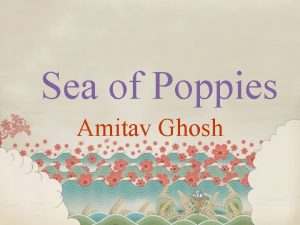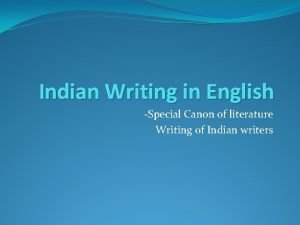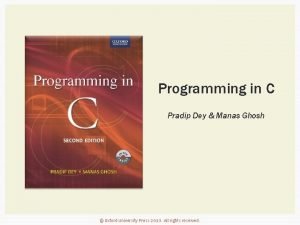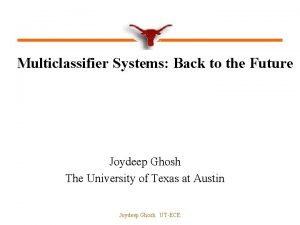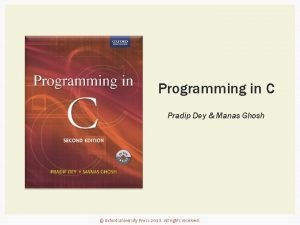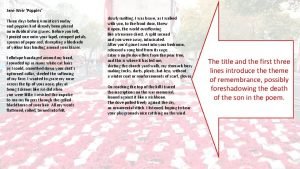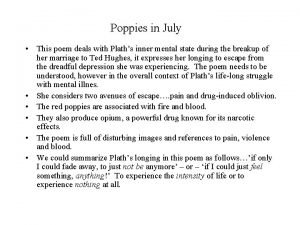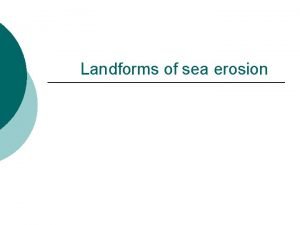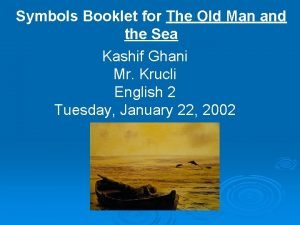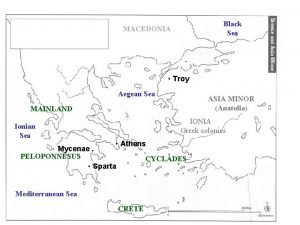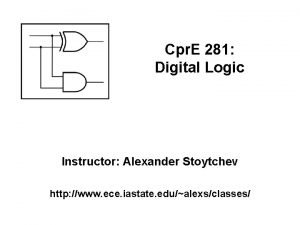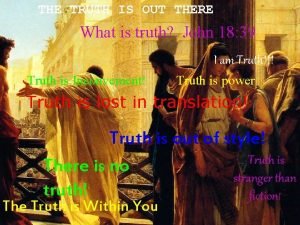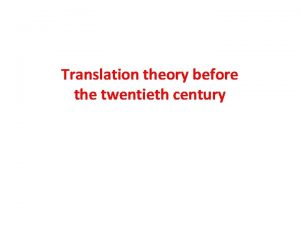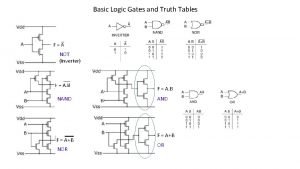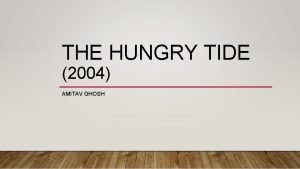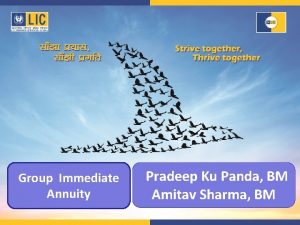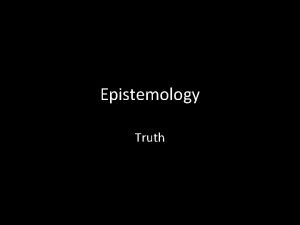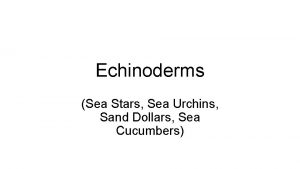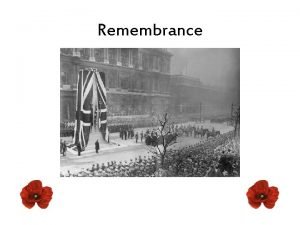Sea of Poppies Amitav Ghosh The truth is

















![HISTORICAL BACKGROUND “The moment the vessel made contact with the sacred waters […] it HISTORICAL BACKGROUND “The moment the vessel made contact with the sacred waters […] it](https://slidetodoc.com/presentation_image_h2/5145b37a1d24efce17e6f7dd55f451b8/image-18.jpg)

















































![First Opium War ‘We should not be surprised, ’ said Mr Burnham […] ‘No First Opium War ‘We should not be surprised, ’ said Mr Burnham […] ‘No](https://slidetodoc.com/presentation_image_h2/5145b37a1d24efce17e6f7dd55f451b8/image-68.jpg)
![Captain Chillingworth alone seemed to be unaffected by the high spirits […]Mr Justice Kendalbushe Captain Chillingworth alone seemed to be unaffected by the high spirits […]Mr Justice Kendalbushe](https://slidetodoc.com/presentation_image_h2/5145b37a1d24efce17e6f7dd55f451b8/image-69.jpg)








![“We are Hindus who have crossed the black water […] we are now partly “We are Hindus who have crossed the black water […] we are now partly](https://slidetodoc.com/presentation_image_h2/5145b37a1d24efce17e6f7dd55f451b8/image-78.jpg)











- Slides: 89

Sea of Poppies Amitav Ghosh

“The truth is, sir, that men do what their power permits them to do. We are no different from the Pharaohs or the Mongols: the difference is only that when we kill people, we feel compelled to pretend that it is for some higher cause. It is this pretense of virtue, I promise you, that will never be forgiven by history ”. [Amitav Ghosh, Sea of Poppies, 2008]


“The greatest Indian writer in English” • • • Calcutta, India, 1956 From Bangladesh, Sri Lanka and Iran to west, and then back to India History student in Delhi and anthropology student in Oxford Comparative literature and creative writing professor in the USA Writer, journalist, anthropologist

Famous achievements… or not. Commonwealth Writers’ Prize The Glass Palace “Best novel in the Eurasian section” 54 th Jnanpith Award First Indian writer in English 2018

It is madness to think that knowing a language and reading a few books can create allegiances between people. Thoughts, books, ideas, words, if anything, they make you more alone, because they destroy whatever instinctive loyalties you may once have possessed. [Amitav Ghosh, Flood of fire, 2015] • XXth century’s second generation of authors • Age of Anxiety

Salman Rushdie (1947) Midnight’s Children (1981) Doris Lessing (1919 -2013) The Golden Notebook, 1962 2007 Nobel Prize for Literature Martin Amis (1949) Time's Arrow, 1991 Hanif Kureishi (1954) The Buddha of Suburbia, 1990 Kazuo Ishiguro (1954) The Remains of the Day, 1989 2017 Nobel Prize for Literature

IBIS TRILOGY Sea of Poppies, 2008 River of Smoke, 2011 Flood of Fire, 2015

IBIS TRILOGY • First book: set in Bihar’s opium plantations and factories, Calcutta, and then in the Indian Ocean on the Ibis, a ship sailing to Mauritius with migrants, lascars and slaves on board. • Second book: the story focuses on Seth Bahram, a parsi opium merchant, who has to face the stop of economic transactions imposed by the Chinese government in 1839. • Third book: the increasing rattling situation crumbles: the “First Opium War” starts, and it will allow England to conquer Hong Kong and to set the purchase of opium which had been banished before.

The title and the structure Characters are depicted as poppy seeds emanating in large numbers from the field to form a black sea, each one with insecurities and uncertainties about the future. The plot is made of different sub-plots, which are all tied to the presence of a ship: the Ibis.

The plot Zachary, the son of a white father boards the Ibis in order to escape racism. A lot of incidents occur and take out the most experienced members of the ship’s crew. Zachary becomes second in command. Once in Calcutta, he is believed to be a gentleman. He is made second mate as the Ibis prepares for its next voyage.

The plot Neel Halder is a rajah whose dynasty has been in power for centuries in Rakshali. He wants to sell his estates as a way to pay for debts he has run up investing in the opium trade with China. Burnham suggests having Halder use his zamindary to settle the loan, but he refuses as it is part of his family’s ancestral property. Burnham and some of his friends organize a trial and Halder is accused of forgery. He is sentenced to seven years in prisoner in Mauritius, which will also lead to the loss of his caste. While in prison Halder meets Ah Fatt who is a half-Chinese, half. Parsi. They both are put on the Ibis.

The plot Paulette, a French orphan grew up in India with her best friend Jodu, who is the son of her nursemaid. Burnham and his wife take her in, though the girl is more comfortable with Indian ways than with the Western lifestyle. Paulette is being pressured by Burnham to marry his friend, Justice Kendalbushe. She flees to Mauritius, looking for a better future. Jodu and Paulette both travel on the Ibis. Jodu travels as a sailor, with Paulette disguised as a niece of one of Burnham’s employees.

The end As the stories of the different characters continue, the Ibis becomes a sort of shelter for people who are looking for a better future or better opportunities. Some characters, including Halder and Jodu, are headed for Singapore, while Paulette, Deeti, and Zachary head for Mauritius.

The setting The banks of the Ganges: one of the most sacred rivers to Hindus. Millions of Indians live along its course and depend on it for their daily needs. In Hinduism, it is personified as the goddess Gaṅgā. The author compares the Ganges to the Nile, the lifeline of the Egyptian civilization, attributing the development of these civilizations to these selfless bodies.

Calcutta, the capital of the Indian state of West Bengal.

Destinations of the characters: Mauritius Singapore
![HISTORICAL BACKGROUND The moment the vessel made contact with the sacred waters it HISTORICAL BACKGROUND “The moment the vessel made contact with the sacred waters […] it](https://slidetodoc.com/presentation_image_h2/5145b37a1d24efce17e6f7dd55f451b8/image-18.jpg)
HISTORICAL BACKGROUND “The moment the vessel made contact with the sacred waters […] it happened in the second week of the March 1838, for that was when the Ibis dropped anchor off Ganga. Sagar Island, where the holy river debouches into the Bay of Bengal”. (Part I)

The novel is set in India in the 19 th century and most precisely the story begins in 1838, when the Ibis arrives on the banks of the holy river Ganges and its second officer, Zachary Reid, “had his first look at India”. (Part I)

BRITISH EAST INDIA COMPANY

• Back then the Indian subcontinent was under the control of the British East India Company, that ruled the beginnings of the British Empire in India. • Incorporated by royal charter in 1600, the private company was formed in order to trade basic commodities such as cotton, spices, silk, tea and even opium in the Indian Ocean region and later with Qing China.

• In 1612 the boats belonging to the company arrived in Surat, in the modern state of Gujarat, which was the first commercial branch. • On behalf of James I, in 1616 Sir Thomas Roe was sent to India to meet the Mughal emperor Jahangir in order to establish with him an exclusive commercial treaty.

• Roe did not succeed in making the formal deal but he became friends with the emperor, so the company could later develop trading posts and strongholds in Surat, Bombay, Madras and Calcutta. • The British traders gradually expanded their powers and their commercial operations, putting an end to the rivalry with the Portuguese, the Dutch and the French.

• The turning point for the company was when it started to directly collect taxes in Bengal, Bihar and Orissa, paying an annual tribute to the emperor. • In doing so, the British moved from the coasts to the villages and they soon started to be recognized as the military power while the Indian élites conducted a lazy and luxurious life.

• The Mughal empire subsequently became weaker and weaker until its formal end came during the suppression of the Mutiny in 1858. • In the same year, the company lost all its administrative functions and at the beginning of 1860 all its the possessions came under the control of the Crown.

CHARACTERS

With the purpose of focusing on those personalities which can be identified as the most relevant in the book, we have decided to look at a specific image which appears recurrently in the novel and that will be completely developed by the author in the second book of the Ibis trilogy. We are talking about “Deeti’s Shrine”, which is mentioned at least 8 times in our book, even if his construction and accomplishment is entirely narrated in “River of Smoke”, from which we will derive an interesting summary of the main characters of our novel. “Vwala! That one there with the three eyebrows? That’s Jodu, the lascar—he’d grown up with your Tantinn Paulette and was like a brother to her. And that over there, with the turban around his head, is Serang Ali—a master mariner if ever there was one and as clever as a gran-koko. And those two there, they were convicts, on their way to serve time in Mauritius—the on the left, his father was a big Seth from Bombay but his mother was Chinese, so we called him Cheeni, although his name was Ah Fatt. As for the other one, that’s none other than your Neelmawsa, the uncle who loves to tell stories. It was only then that the tip of her cane would move on to the towering figure of Maddow Colver (Kalua), who was depicted standing upright, in the middle of the boat. […] There, vwala! That’s me (Deeti) on the deck of the Ibis with your Tantinn Paulette on one side and Baboo Nob Kissin on the other. And there at the back is Malum Zikri—Zachary Reid, the second mate”.

BABOO NOB KISSIN NEEL RATTAN HALDER PAULETTE LAMBERT AH FATT MAIN JODU CHARACTERS SERANG ALI ZACHARY REID DEETI KALUA

DEETI • Deeti is a young woman of an upper caste, who lives in a village about 400 miles from the sea. She is married to Hukam Singh, an Opium addict, who was wounded in battle. She has a daughter named Kabutri, who was actually fathered by her brother in law Chandan Singh, since she had been raped on her wedding night. When Hukam dies, she decides to commit sati on his funeral pyre, rather than marry Chandan. She is rescued by Kalua, an “untouchable” whom she once saved. Together with Kalua she leaves her village for Calcuttta. She boards the Ibis, along with him, to become an indentured laborer in Mauritius and to run away from his husband’s family, whose name had been sullied by her elopement with Kalua. PATNA CALCUTTA

• “After seven years of marriage, Deeti was not much more than a child herself, but a few tendrils of white had already appeared in her thick black hair. The skin of her face, parched and darkened by the sun, had begun to flake and crack around the corners of her mouth and her eyes. Yet, despite the careworn commonplaceness of her appearance, there was one respect in which she stood out from the ordinary: she had light grey eyes, a feature that was unusual in that part of the country. ” • “Was it because of the glow of Deeti’s pregnancy? Or was it because of her success in dealing with the maistries? Either way, it happened that more and more people took to calling her Bhauji: it was as if she had been appointed the matron of the dabusa by common consent. Deeti gave the matter no thought: there was nothing to be done, after all, if everybody wanted to treat her as if she were their older brother’s wife. ”

PAULETTE LAMBERT Paulette Lambert is a young French woman who has been raised in an unconventional manner by her botanist father and her wet nurse, who is the mother of Jodu, Paulette’s childhood playmate and best friend. Mr. and Mrs. Burnham take Paulette in after her father's death. Paulette feels more at ease with Indian manners, food, and clothing than with Western ones, but the Burnham household fiercely disapproves. Paulette becomes determined to run away because of sexual harassment by Mr. Burnham and pressure to marry his friend, Justice Kendalbushe. She resolves to travel to Mauritius, as her great-aunt did, in the hope of finding a better future, in disguise as the Indian niece of one of the Mr. Burnham's employees, living among the coolies on the boat.

• “At seventeen, Paulette was unusually tall, of a height where she could look over the heads of most of those around her, men and women alike. Her limbs, too, were of such a length that they tended to wave like branches in a wind” [. . ] since her arrival at Bethel, her diffidence about her appearance had been transformed into an acute self-consciousness: in repose, her nails and fingertips would seek out small blemishes and tease them until they became ugly blotches on her pale complexion” • “' Paulette took a deep breath. 'Baboo Nob Kissin – I propose to hold you to your words. In exchange for this locket I wish to obtain a passage on the Ibis. ' 'Ibis!' Baboo Nob Kissin's mouth dropped open. 'You are mad or what? How you shall go on Ibis? Only coolies and quoddies may be accommodated on said vessel. Passenger traffic is not existing. ' 'That matters nothing to me, ' said Paulette. 'If I could join the labourers I would be content. “

“Although her ghungta was certainly her most important means of concealment, it was by no means the only one; she had also disguised her appearance in a number of other ways: her feet were lacquered with bright vermilion alta; her hands and arms were covered with intricate, hennaed designs that left very little of her skin visible”

ZACHARY REID Zachary Reid is the son of a white father and a quadroon mother. He is a young sailor from Baltimore who has left America because professional jealousy has led him to constant harassment by the American sailors. With the support of lascars and Serang Ali, the leader of the lascars, Zachary Reid has raised his soul above his station and the potential to progress to officer status, something impossible for him at home. Though Reid’s own background is not so different from that of the lascars, he is a foreigner, a man who has no known caste within Indian society, and Serang Ali treats him as a superior to the lascars. He is given the post of a second mate in the second voyage of the Ibis. NEW YORK

• “Zachary Reid was of medium height and sturdy build, with skin the colour of old ivory and a mass of curly, lacquer-black hair that tumbled over his forehead and into his eyes. The pupils of his eyes were as dark as his hair, except that they were flecked with sparks of hazel: as a child, strangers were apt to say that a pair of twinklers like his could be sold as diamonds to a duchess” • “But Zachary had signed on with a mind to learning the sailor's trade, and he stepped on board with great eagerness, carrying a canvas ditty-bag that held little more than a change of clothes and a penny-whistle that his father had given him as a boy. The Ibis provided him with a quick, if stern schooling, the log of her voyage being a litany of troubles almost from the start. Mr Burnham was in such a hurry to get his new schooner to India that she had sailed short-handed from Baltimore, shipping a crew of nineteen, of whom nine were listed as 'Black', including Zachary. ”

NEEL RATTAN HALDER Neel Rattan Halder is a rajah whose dynasty has been ruling the zemindary of Raskhali for centuries and a profiteer in the opium trade. He is materialistic, decadent and promiscuous. He has to pay the price for refusing to sell his estates to Burnham. He is framed forgery and dispossessed from his royal palace, separated from son and wife and made to share a room with a stinking convict -Ah-Fatt- and now to aboard the Ibis as a convict. Neel is forced to break every prohibition dictated by his Hindu upbringing and his social class.

• “Though not Brahmins, the Halders were orthodox Hindus, zealous in the observance of upper-caste taboos and in following the usages of their class: to them, the defilements associated with the preparation of food were anathema. ” “This last part of the convicts' routine, Bhyro Singh was quick to appropriate: the pretence that they were a pair of plough-oxen and he a farmer, tilling a field, seemed to give him endless delight; he would loop their chains around their necks, in such a way that they were forced to stoop as they walked; then, shaking their fetters like reins, he would make a clicking, tongue-rolling noise as he drove them along, occasionally slicing at their legs with his lathi. ”

KALUA Kalua is an. Untouchable*. He takes Hukam (Deeti’s husband) to the factory in his cart each day, and he is the one who brings back Hukam’s body when he dies. He is a strong wrestler, rescued by Deeti from humiliation by some high caste Thakurs (feudal lords). In turn, he saves her from the funeral pyre of her husband. Together with Deeti, he leaves for Calcutta and then boards the Ibis to go to Mauritius. *Dalit means "broken people, they were formerly known as “untouchables”. Dalits live at the bottom of India's rigid social order known as the caste system: they are the manual scavengers, the removers of human waste and dead animals, leather workers, street sweepers and cobblers. The mere touch of a Dalit was considered “polluting” to a caste member. Thus, the concept of "untouchability" was born. Kalua is a a member of the leather workers’ caste, hence an untouchable. Dalit woman in Mumbai, 1942

SERANG ALI Serang Ali is the leader of a lascar company, he is the only character in this group with a biography and with an emphatically cross-cultural knowledge. He functions as a paternal mentor to Zachary. Serang Ali’s language is a pidgin version of English, which includes elements of the language spoken in the region he comes from. In the last part of the novel Zachary Reid becomes aware that Serang Ali is nothing but the father-in-law of Adam Danby, an infamous pirate and that, in all those months, the lascar had tried to realize on him Adam’s ambitions, since the pirate had been assassinated some years earlier with his whole family.

JODU • Jodu was the son of a boatman; since its birth, its destiny had been closely intertwined with that of Paulette Lambert; since Jodu's mother had nursed Paulette as a newborn, the woman with his son were welcomed into Mr. lambert's house and the children had grown up as siblings. After the sudden death of Mr. Lambert, Jodu and his mother had returned to their native village where his mother had died after some months. We find him again in Clacutta intent on embarking on a ship as a common slacker.

BABOO NOB KISSIN A very pragmatic but secretly deeply religious Bengali agent of the wealthy British businessman Mr Burnham; he believes that he is gradually changing sex, becoming the avatar of the woman who was his spiritual mentor, his saintly aunt Ma Taramony. ; he comes to believe that Zachary is an avatar of Krishna and Numerous plot developments are facilitated by him. • “Nowhere was this transformation more evident than in himself, for the presence of Taramony was so palpable within him now that his outer body felt increasingly like the spent wrappings of a cocoon, destined soon to fall away from the new being that was gestating within. Every day offered some fresh sign of the growing fullness of the womanly presence inside him – for example, his mounting revulsion at the coarseness of the maistries and silahdars with whom he had perforce to live: when he heard them speaking of breasts and buttocks, it was as if his own body were being discussed and derided; at times, his need to veil himself was so intense that he would pull a sheet over his head. ”

AH FATT Ah Fatt is an opium addict and inhuman character, is a bastard child of a Parsi father and Chinese mother form Canton. He looks for his father who spurns him to avoid ignominy. He is on trial in India and left in stinking state into a dark cell in Alipore. He shares his cell with Neel Rattan Halder. Initially they are at loggerheads but gradually they come closer to each other, boarding the Ibis towards Mauritius.

OTHER CHARACTERS: • Benjamin Burnham is an unscrupulous British merchant and he owns the Ibis and engages in the opium trade. Since the slave trade has been officially ended, Burnham has kept the Ibis intact and simply switched to the transport of exiled prisoners and coolies. Though Burnham is the son of Liverpool tradesman, his willingness to finance and manage these exploited wealth and a lavish lifestyle impossible for him in England • Hukam Singh, the husband of Deeti, is a cripple who was wounded in battle. He is an opium addict working in the Ghazipur Opium Factory. When Hukam dies, Deeti plans to commits sati in his funeral pyre, to avoid marriage with Chandan. • Chandan Singh is the brother of Hukam Singh. He raped Deeti along with his mother as an accomplice, on the day of her marriage to Hukam. He is the father of Kabutri, Deeti’s daughter. • Bhyro singh is Hukam and Chandan’s uncle, he is depicted as a powerful and merciless man; he has been probably involved in Deeti’s rape during her wedding night and is involved with the search of both of them for their elopement. Unfortunately, Kalua and Deeti meet Bhyron Singh on the Ibis

GROUPS OF PEOPLE • LASCARS: In the novel a large number of Lascars are employed during the first voyage of the Ibis from Baltimore to Calcutta; their leader is Serang Ali. The term ‘lascar’ (believed to derive from the Persian lashkar, meaning an army, a camp or a band of followers) dates back to the early 1500 s when it was used by Portuguese explorers to describe the sailors they encountered from modern India, Malaysia, Thailand, Burma, China, etc. By the seventeenth century, though, lascars were increasingly employed on British merchant ships as the Empire rapidly expanded and new trading routes materialized. “He had thought that lascars were a tribe or nation, like the Cherokee or Sioux: he discovered now that they came from places that were far apart, and had nothing in common, except the Indian Ocean; among them were Chinese and East Africans, Arabs and Malays, Bengalis and Goans, Tamils and Arakanese. They came in groups of ten or fifteen, each with a leader who spoke on their behalf. To break up these groups was impossible; they had to be taken together or not at all, and although they came cheap, they had their own ideas of how much work they would do and how many men would share each job. ”

• GIRMITYAS In 1833, slavery was officially abolished in the British Empire. Moreover, profits from the fantastically lucrative opium trade came under threat due to changing Chinese policies. In this newly uncertain economic reality, both factors combined to make the engagement and transportation of indentured laborers suddenly profitable. Accordingly, British officials engaged in the mass recruitment of Indian laborers; Those recruited signed an indenture “agreement”—vernacularized in North Indian languages as “girmit”—and were thereafter known as “girmitiyas”). The girmitiyas were transported to British colonies as far-flung as Mauritius and Fiji to East Africa and the Caribbean (e. g. , Trinidad, Guyana, Jamaica) In Gosh’s novel the fracture of traditional identities created new solidarities forged out of a sense of subaltern companionship and togetherness…which would over time lay the foundations of a new, more egalitarian, more pragmatic, and less protocol-driven culture; his new inclusive unity amongst the girmitiyas is strikingly articulated by Ghosh as follows: “from now on, and forever afterwards, we will all be ship-siblings— jaházbhais and jaházbahens— to each other. There’ll be no differences between us!”

REPRESENTETION OF WOMEN Ghosh has tried to depict sufferings women from all sections of Indian society during the nineteenth century. He has dealt with social problems like sati, rape, seclusion, misery and isolation during the widowhood. Throughout the novel, theme of sexual abuse and rape occur very frequently and it is also illustrated that black women slaves are perceived as objects of sexual gratification, in fact we learn that another character’s -Zachary’s mother- is raped by her master and Deeti herself was not the only rape victim in Sea of Poppies. In the name of educating Paulette, Mr Burnham does not hesitate to enforce his fantasies on her such as whip-beating. Later on, during the sea journey, we see the subedar, Bhyro Singh abusing Deeti explicitly. Also, a female character named Munia cannot say “no” to her boyfriend out of the fear of public exposure and eventually had a son out of wedlock, as it is expressed in the following words: “She had enjoyed the secrecy and the romance and even the fondling, until the night when he forced himself on her: after that for fear of public exposure, she had continued to do his bidding”. •

• In the novel it emerges the belief that women at the time of their period are considered as dirty and may bring bad luck to their community and thus are sent out of their home to a secluded place: “It so happened that it was Munia’s time of the month, so she was sleeping away from others, out in the fields…” • Another interesting point given in the novel is that there is a relationship between the costumes of women and honour. In the Indian case, it seems that veil represents honour of a woman, and extensionally her family’s honour as well. In Sea of Poppies, there are many passages which emphasize this kind of relationship between veil or purdah and honour: “The covers had dropped from her everveiled face, and [Malati] had torn open the bindings of her braids so that her hair lay on her shoulders like a dark shroud of grief… it was as if the uncovering of her face stripped the veil from his own manhood, leaving [Neel, her husband] naked and exposed to the gloating pity of the world, to a shame that could never be overcome”.

• Through the character of Heeru, Ghosh has tried to depict plight of women left by their husband due to some disease or inability to give male heir to the family. She is left by her husband in a fair due to her disease of forgetfulness. • • Through the character of Neel’s wife Malti, it is shown how his wife is a passive sufferer and her condition is not better than Deeti’s. Her life is controlled by patriarchal laws. She is made to play role of mother and wife, without any expectations while her husband enjoys with his mistress Elokeshi. She is just a silent spectator in the house performing duties and never questioning her husband. The characters of Mrs Burnham and her daughter represent the counterpart of the so called Memsahib; they are representative of the mindset of Britishers that they are superior than Indians and anything which is a part of Indian culture is looked upon as inferior be it people, dress or language.

SATI Richard Shweder explains that most of the widows want to practice sati in order not be excluded by their friends or family and to gain fame and honour in their community after their death, thinking that isolation in their community is something more horrible than to die in the fire. During the British Raj in India Sati was banned, but it was a long and complex process: the first formal British ban was imposed in 1798, in the city of Calcutta only but the practice continued in surrounding regions until 1861 when the general ban on Sati was issued by a proclamation from Queen Victoria.

CONCLUSION: In the Indian context emerged from the novel women are doubly and some are triply marginalized but they abandon restriction of complex society and go ahead identifying themselves as indentures on a strange land. They desire to leave their complicated past experience and seek betterment in future. They build up an egalitarian community which is classless and casteless embodying the novel’s soul.

White Man’s Mastery ‘Freedom, yes, exactly, ’ said Mr Burnham. ‘Isn’t that what the mastery of the white man means for the lesser races? As I see it, Reid, the Africa trade was the greatest exercise in freedom since God led the children of Israel out of Egypt. Consider, Reid, the situation of a so-called slave in the Carolinas – is he not more free than his brethren in Africa, groaning under the rule of some dark tyrant? ’ - p. 79

“Here the judge broke off and spoke directly to Neel: ‘Do you understand what that means? It means that forgery was a hanging offence – a measure which played no small part in ensuring Britain’s present prosperity and in conferring upon her the stewardship of the world’s commerce. And if this crime proved difficult to deter in a country such as England, then it is only to be expected that it will be very much more so in a land such as this, which has only recently been opened to the benefits of civilization. ’ […]” – p. 235

Mr Burnham’s words reveal in more than an occasion how much discourses about freedom are paradoxically involved in the process of enslaving people and in forcing them to trade with Great Britain. Furthermore Mr Burnham is described as a very religious person, so he perceives himself as a sort of missionary who is fulfilling God’s will. It does not matter if the path will be painful for humans living in India, Africa or China, because this is the way chosen by God.

‘But Mr Burnham! Are you saying the British Empire will go to war to force opium on China? ’ […. ]‘Evidently you have mistaken my meaning, Raja Neel Rattan, ’ he said. ‘The war, when it comes, will not be for opium. It will be for a principle: for freedom – for the freedom of trade and for the freedom of the Chinese people. Free Trade is a right conferred on Man by God, and its principles apply as much to opium as to any other article of trade. More so perhaps, since in its absence many millions of natives would be denied the lasting advantages of British influence. ’[…] One of my countrymen has put the matter very simply: “Jesus Christ is Free Trade and Free Trade is Jesus Christ. ” Truer words, I believe, were never spoken. If it is God’s will that opium be used as an instrument to open China to his teachings, then so be it. For myself, I confess I can see no reason why any Englishman should abet the Manchu tyrant in depriving the people of China of this miraculous substance. ’ […] Do you think it pleases God to see us conspiring with that tyrant in depriving such a great number of people of this amazing gift? ’ – pp. 115 – 116

Certainly, Christianity has always been one of the justification to colonization and the exploitation of colonized places. As a matter of fact the scholar John Fage in his book A History of Africa, explains how Europeans, being unfamiliar with African customs, defined African populations as savages: “Mid-and late-nineteenth-century Europeans were generally convinced that their Christian, scientific and industrial society was intrinsically far superior to anything that Africa had produced” - A History of Africa, p. 322

Colonial Oppression “Deeti drew the ghungta of her sari over her face, but the old cotton, was now so worn that she could see right through it: the faded fabric blurred the outlines of everything in view, tinting the edges of the plump poppy pods with a faintly crimson halo. […] she saw that on some nearby fields, the crop was well in advance of her own: some of her neighbours had already nicked their pods and the white ooze of the sap could be seen congealing around the parallel incisions of the nukha. The sweet, heady odour of the bleeding pods had drawn swarms of insects […] many would get stuck in the ooze and tomorrow, their bodies would merge into the black gum, becoming a welcome addition to the weight of the harvest. The sap seemed to have a pacifying effect even on the butterflies, which flapped their wings in oddly erratic patterns, as though they could not remember how to fly. […] See how it’s lost in dreams? Deeti said. That means the harvest will be good this year. Maybe we’ll even be able to fix our roof. ” – p. 28

Deeti’s case is just one of the many analogous cases that Indian farmers were forced to face because of the British. They forced the colonized to produce crops according to the colonizers’ business necessities. So Deeti was forced to begin a poppy plantation, renouncing to plant wheat and paddy which she needed to support her family.

“In the old days, the fields would be heavy with wheat in the winter, and after the spring harvest, the straw would be used to repair the damage of the year before. But now, with the sahibs forcing everyone to grow poppy, no one had thatch to spare – it had to be bought at the market, from people who lived in faraway villages, and the expense was such that people put off their repairs as long as they possibly could. […] The factory’s appetite for opium seemed never to be sated. Come the cold weather, the English sahibs would allow little else to be planted; their agents would go from home to home, forcing cash advances on the farmers, making them sign asámi contracts. It was impossible to say no to them: if you refused they would leave their silver hidden in your house, or throw it through a window. ” – p. 29 Before the British arrival, opium was produced for being sold to local nobility or for personal use. Nevertheless because of the opium business Indian farmers were not only forced to deprive themselves of their livelihoods, but they were also low paid. In this way the Empire guaranteed itself maximum earnings and a weakened population who could not easily rise up against its authority.

Zemindar The word zemindar means land owner in Persian and it was used to refer to that hereditary class who held land, had control over their peasants and had the task to collect taxes for the Mughals. This zamindari system was more present in the north but during the colonial period it was exploited by British rulers. Furthermore the British recognized the zemindars as landowners as opposed to Mughal authority, rewarding the more supportive of them with royal titles such as Maharaja (Great King) or Raja (King). This system was abolished only after the Indian Independence (1947), during the 50 s.

In Sea of poppies Amitav Ghosh displays how much Indian landlords trusted the East Indian Company’s policy and the Queen’s rule. Nonetheless the reality was much more turbid, as Ghosh tries to make clear through the trial of the zemindar Neel Rattan Halder. Neel’s father was exploited by the British businessman Burnham, who finally trapped Neel himself, accusing him of forgery and taking possession of his properties legally. “The ease of his incarceration was such that Neel was hard put to take his legal difficulties very seriously. His relatives among Calcutta’s gentry had told him that his was to be a show-trial, intended to persuade the public of the even-handedness of British justice […] In any event, it was unthinkable that a member of their class would be treated as a common criminal. ” – p. 200

Nevertheless when Neel saw that the judge, who was going to preside over the trial, was a close friend of Mr. Burnham immediately understood what really was the British justice in India: “In the course of his trial it had become almost laughably obvious to Neel that in this system of justice it was the English themselves – Mr Burnham and his ilk – who were exempt from the law as it applied to others […]” – p. 239 Neel is with no doubt a hybridized subject who can speak a proper English but his apparently similarity with the colonizer did not save him. Humiliated and imprisoned, he decided to use the only weapon he had: knowledge.

‘Sir, ’ he said, ‘can you not afford me the dignity of a reply? Or is it that you do not trust yourself to speak English? ’ The man’s eyes flared and Neel saw that he had nettled him, simply by virtue of addressing him in his own tongue – a thing that was evidently counted as an act of intolerable insolence in an Indian convict, a defilement of the language. The knowledge of this – that even in his present state, stripped to his skin, powerless to defend himself from the hands that were taking an inventory of his body – he still possessed the ability to affront a man whose authority over his person was absolute: the awareness made Neel giddy, exultant […] in this jail, he decided, as in the rest of his life as a convict, he would speak English whenever possible, everywhere possible, starting with this moment, here. […] ‘. . . this is the excellent foppery of the world. . . to make guilty of our disasters, the sun, the moon and the stars. . . ’ The serjeant interrupted him with an angry command: Gánd dekho. . . bend him over, check his arse […] Neel still would not stop[…] His voice rose till the words were echoing off the stone walls. The serjeant rose from his seat as Neel was straightening up. An arm’s-length away, he came to a halt, drew his hand back and struck Neel across the face: ‘Shut yer gob, quoddie. ’[…] ‘A very good day to you, sir, ’ he muttered, bowing his head. – pp. 289 – 290

Through Neel’s decision of speaking only English in order to rise against the British authorities, Amitav Ghosh seems to clearly allude to the colonial future of India and in particular to the end of the British Empire. Neel smartly decides to use what he learnt in order to strongly declare his state as human being. Likewise India will get back its own destiny through the knowledge acquired in England, translating what they learnt to their social and political context.

Afeemkhor “It was when he said these words that Deeti understood what the future held: she remembered how, as children, she and her playmates had laughed at the afeemkhors of their village – the habitual opium-eaters, who sat always as if in a dream, staring at the sky with dull, dead eyes. Of all the possibilities she had thought of, this was one she had not allowed for: that she might be marrying an afeemkhor – an addict. ” - p. 34 Afeemkhor means drug addict and in the novel there are two characters who can be defined using this term: Deeti’s husband Neel’s cell-mate Lei Leong Fatt, known as Ah Fatt. Amitav Ghosh in the first novel of his trilogy tries to illustrate not only the British business tied to the opium trade but also the effects and the consequence of it on people’s life, not only on their body, and their societies.

“Next, using both hands, he took out a small lump, still in its poppypetal wrapper, and touched it to her palm, to show her how soft it was: This is what we make in the factory: chandu. You won’t see it here, the sahibs send it across the sea, to Maha. Chin. ” – p. 33 The chandu is a concentrated preparation of opium that was mainly exported to China after being produced in the factories since the early 1790 s. Amitav Ghosh dedicates nine pages to the description of the hard work Indian labourers had to face every day in the factories in order to produce chandu. He puts light on how this complex activity was accomplished in the Ghazipur factory, which nowadays is the oldest still working opium factory in the world. “The factory was immense: its premises covered forty-five acres and sprawled over two adjoining compounds, each with numerous, courtyards water tanks and iron-roofed sheds. ”– p. 98

‘I thought not, ’ said Mr Burnham. ‘So you would do well to bear in mind that it would be well nigh impossible to practise modern medicine or surgery without such chemicals as morphine […]and these are but a few of the blessings derived from opium. […] Why, one might even say that it is opium that has made this age of progress and industry possible: without it, the streets of London would be thronged with coughing, sleepless, incontinent multitudes. And if we consider all this, is it not apposite to ask if the Manchu tyrant has any right to deprive his helpless subjects of the advantages of progress? Do you think it pleases God to see us conspiring with that tyrant in depriving such a great number of people of this amazing gift? ’ – p. 116 In Burnham’s opinion opium is a revolutionary substance but it is also seriously addictive. In China millions of people became dependent on the drug and as a result the majority of them died because of their addiction, even among official classes and imperial troops.

Feeling threatened the Qing dynasty tried to impose opium restrictions and in the 1839 even a letter was sent to Queen Victoria, by one of the emperor’s scholar. He questioned the moral reasoning of the British government, claiming that the Chinese government “mean to cut this harmful drug forever. “ Nonetheless the letter never reached the Queen, with one source suggesting that it was lost in transit.
![First Opium War We should not be surprised said Mr Burnham No First Opium War ‘We should not be surprised, ’ said Mr Burnham […] ‘No](https://slidetodoc.com/presentation_image_h2/5145b37a1d24efce17e6f7dd55f451b8/image-68.jpg)
First Opium War ‘We should not be surprised, ’ said Mr Burnham […] ‘No one dislikes war more than I do […] But it cannot be denied that there are times when war is not merely just and necessary, but also humane. In China that time has come: nothing else will do’. – p. 260 Decrying that Chinese emperor was restricting free trade, the British Crown was persuaded to wage the first Opium War, fought from 1839 to 1842. This war did not legalise the opium trade, but stopped the emperor’s efforts to save his people while in the second Opium War, fought between a British. French alliance and China from 1856 to 1860, the Chinese government was forced to legalise this trade. It will be only around the 1949, when the Chinese Communist Party came to power, that opium smoking was erased.
![Captain Chillingworth alone seemed to be unaffected by the high spirits Mr Justice Kendalbushe Captain Chillingworth alone seemed to be unaffected by the high spirits […]Mr Justice Kendalbushe](https://slidetodoc.com/presentation_image_h2/5145b37a1d24efce17e6f7dd55f451b8/image-69.jpg)
Captain Chillingworth alone seemed to be unaffected by the high spirits […]Mr Justice Kendalbushe bestowed a kindly smile on him: ‘A great pity, Captain Chillingworth, that your health will not permit you to join the expedition. No wonder you are gloomy. In your place I would be sorry too. ’ Suddenly Captain Chillingworth bristled. ‘Sorry? […]Why, no: I am not sorry in the least. I have seen enough of such things in my time; I can well do without another round of butchery. […] The truth is, sir, that men do what their power permits them to do. […] the difference is only that when we kill people we feel compelled to pretend that it is for some higher cause. It is this pretence of virtue, I promise you, that will never be forgiven by history. ’ – pp. 261 - 262

Girmitiya “They are girmitiyas, said Ramsaran-ji, and at the sound of that word Deeti uttered an audible gasp – for suddenly she understood. It was a few years now since the rumours had begun to circulate in the villages around Ghazipur: although she had never seen a girmitiya before, she had heard them being spoken of. They were so called because, in exchange for money, their names were entered on ‘girmits’ – agreements written on pieces of paper. The silver that was paid for them went to their families, and they were taken away, never to be seen again: they vanished, as if into the netherworld. […] to know that you would never again enter your father’s house; that you would never throw your arms around your mother; never eat a meal with your sisters and brothers; never feel the cleansing touch of the Ganga. ” – pp. 71 - 72 In order to recover the losses caused by the abolition of slavery in 1833, the colonial empire found a solution in the business of opium and of indentured labourers. For this reason the ships that were used for the inhuman transport of people from Africa during the slave trade, were converted into vessels that would have brought the indentured labourers to the sugar plantations in Mauritius, Fiji and Trinidad.

The Ibis “It was because her new self, her new life, had been gestating all this while in the belly of this creature, this vessel that was the Mother-Father of her new family, a great wooden mái-báp, an adoptive ancestor and parent of dynasties yet to come: here she was, the Ibis. ” – pp. 356 - 357 The Ibis, previously a blackbirder, is a schooner bought by Mr. Burnham to carry on his company business. So the Ibis had two functions: shipping opium to China and transporting indentured labourers to the British colonies. Nonetheless the Ibis has a more important function in the novel, because it offers a third space of encounter among people belonging to different social and national realities, in a place without boundaries: the sea.

In this sense the schooner is a new place for the coolies, who were forced to wash away the ties with their previous lives. Here they can create a new identity that is not only personal, but even collective. “But aren’t you afraid, she said, of losing caste? Of crossing the Black Water, and being on a ship with so many sorts of people? Not at all, the girl replied, in a tone of unalloyed certainty. On a boat of pilgrims, no one can lose caste and everyone is the same […] From now on, and forever afterwards, we will all be ship-siblings – jaházbhais and jaházbahens – to each other. There’ll be no differences between us. […] Not in a lifetime of thinking, Deeti knew […] In the glow of the moment, she did something she would never have done otherwise: she reached out to take the stranger’s hand in her own. ” – p. 356 On the Ibis the relationships among the coolies abolish the rigid hierarchical distinctions, creating a new dimension where nationality, class, caste or ethnicity do not care as in the past. Thus, a new form of community is born. Simultaneously the Ibis passengers, as in the case of Deeti and Kalua, are able to reconstruct their identity creating a new one. Starting from it they will be able to change their life perspective.

What Amitav Ghosh brilliantly offers to his readers is not just a stereotypical representation of the effects of colonialism on individual’s life, instead he focuses his attention on another element: the possibility of an alternative. Amitav Ghosh also tries to give a positive view about this first flow of the Indian diaspora, because the main characters of this novel lived in a hopeless condition or in a humiliating one. Therefore, their journey on the Ibis is also an opportunity to be reborn from the ship's womb, even if they will be indentured labourers.

Kalapani “Slowly, as the vessel’s motion made itself felt in the pit of every stomach, the noise yielded to a pregnant, fearful stillness. Now the migrants began to absorb the finality of what was under way: yes, they were moving, they were afloat, heading towards the void of the Black Water; neither death nor birth was as fearsome a passage as this, neither being experienced in full consciousness” – p. 371 The word kalapani means Black Water and it refers to the proscription of crossing the ocean, contained in the Dharma Sutra. According to it sea voyages would have caused the loss of caste, due to the impossibility to carry out the daily Hindu rituals. In addition, the contact with the creatures of the foreign lands and their immoral societies was something that an Hindu should have avoided. The only way to recover the previous status, according to the Dharma Sutra, is to eat a little, to have a bath at dawn, noon and dusk, to stand during the day and to seat during the night for three years.

After the abolition of slavery a lot of emissaries were sent to India, in order to ensure indentured labourers for the British colonies. Nevertheless, even if the emissaries talked about the colonies as a promised land, many people expressed their fear of crossing the Black Water. For this reason the British decided to adopt a stratagem. Sometimes they filled large cauldrons with Ganges’ water on the ship, to ensure the continuity of reincarnation beyond Kalapani.

Indian Diaspora The novel Sea of poppies is defined as a masterpiece of the Indian diaspora because it is historically set during the first flow of it. The first flow occurred in the XIX century and was tied to the movements of people towards the plantation of the British Empire as coolies, creating big diasporic communities especially in the Caribbean. In Amitav Ghosh’s novel the majority of the indentured labourers signed the contract voluntarily but in other many cases they were forced to sign and even kidnapped sometimes. People who decided or that were forced to leave India usually belonged to the lowest caste or they were outcasts, hoping to become free in another country and maybe to come back in the future. Nevertheless the majority of them was not able to return.

• The second flow of the Indian diaspora occurred when India gained its independence in 1947 and a lot of people moved towards the Great Britain. • The third flow is more recent and regards Indians who moved from a first host country to another one, in particular Canada, the United Kingdom, Netherlands and also Northern Italy.
![We are Hindus who have crossed the black water we are now partly “We are Hindus who have crossed the black water […] we are now partly](https://slidetodoc.com/presentation_image_h2/5145b37a1d24efce17e6f7dd55f451b8/image-78.jpg)
“We are Hindus who have crossed the black water […] we are now partly of the West. Our identity is at once plural and partial. ” After the Independence of India there was a spread of technical and academic education, that created a new class of educated and skilled workers. As a matter of fact the literacy rate since the 1961 has gradually increased, ensuring to Indian population an important social and cultural improvement.

It is not by chance that since the 1970 s a mass emigration of this new class (mainly doctors, scientists, teachers, nurses, architects and also businessmen) occurred due to the lack of jobs in the country. At the beginning, in the XX century, the Indian diaspora consisted in the emigration of unskilled manual labourers. Nowadays the situation is changed and this is clear by looking at this data: In 2017 the majority of Indian immigrants were engaged in low paid blue collar jobs in Europe, one third of the doctors in National Health Service in England 80% of the visa holders in the USA were from India.

Sea of Poppies depicts the language that was spoken in the second quarter of the nineteenth-century in the north-eastern part of India: different varieties of Pidgin languages used by the sailors of different races in the Indian Ocean, Bay of Bengal and their costal region -> authentic language. “I'm dealing with real languages. For example Laskari was an actually spoken language. ” [Amitav G. ]

Dr. Christopher Rollason: • ‘daring’ and ‘even ground breaking’; • ‘English peppered with Indian terms from Bengali or Bhojpuri’. • As Ghosh has depicted characters from all the four corners of the world, they are naturally colourful and vibrant in their use of languages. Deeti and Kalua’s native Bhojpuri language is contrasted with Jodu and Baboo Nob Kissin’s Bengali. • Ghosh is very experimental when he gives voice to the lascars whose origin, lifelong travelling and pidgin give birth to a unique language.

In “Sea of Poppies”, Ghosh highlights the contextualization of language and how a language is turned into different contexts, not always providing the translation or the interpretation of the native words. So, he uses the context to provide the idea of the meaning of the word -> skillfully engaging the readers actively to know the Indian word. At the very beginning of the novel Deeti lays ‘dhoti and kameez’ and prepares ‘rotis and achar’ for her husband. The scene in which Deeti’s ‘ghungta’ covers her face, at page 4, tells the reader that it is the Indian word for ‘veil’.

• The use of different linguistic devices – such as the metonymic gap, code-switching or the use of untranslated native words- -> to highlight the power of the context in the use of language; • The metonymic gap is one of the strongest weapons used by Ghosh. For instance: Deeti’s mother-in-law considers her as ‘Draupadi’ (the virtuous wife of five Pandava brothers); Ghosh gives us the supporting information about ‘Draupadi’ and he explains why Deeti is called like this by her mother-inlaw -> there is no substitution of this name in English.

Untranslated Native Words • Bill Ashcroft: using untranslated native words represents the refusal to give the imperial language ‘the higher status’. • ‘Refusing to translate words not only registers a sense of cultural distinctiveness but also forces the reader into an active engagement with the vernacular culture’. • Amitav Ghosh’s use of untranslated words engages his readers with the native language and culture of his characters actively. • numerous untranslated native words from different aspects of the Indian life including religion, cuisine, dresses etc. • Religion ->Spiritual Journey with Words (native Hindu religious words such as ‘tikki’, ‘gurus’, ‘tols’, ‘pathshalas’, ‘ashrams’, ‘brahmachari’, ‘sadhus’, ‘rishis’ and so on).

Costume Design ->Some of the untranslated words introduce the readers with the costumes of this region. • female costumes such as ‘sari’, ‘choli’, ‘dupatta’, ‘ghungta’, ‘khol’ etc. • the male costumes tell us about the social class of the owner. For instance, ‘langot’ and ‘lungi’ ->lower level in the society, whereas ‘dhoti’, ‘kameej’, ‘kurta’ ->solvent males in the Indian society. Colourful Colloquial Words -> peep the readers through the mundane yet colourful Indian daily lives: ‘seers’, ‘tolas’, ‘kos’ and so on. Food -> a tour inside the north Bihari cuisines mostly based on vegetables rather than fish, as this locality is far from the sea: ‘Dal’, ‘dalpuri’, ‘pakora’, achar’, khicri’ are the Bhojpuri dishes mentioned in the novel.

A very important aspect I the use of code-switching-> to indicate the characters’ social status. • Mr. Doughty shouts with the crews in an angry commanding language using many Indian untranslated words and slangs: “Damn my eyes if ever I saw such a caffle of barnshooting badmashes! A chowdering of your chutes is what you budzats need. […] Do none of you halacores have any wit at all? […] Has he been given the kubber that my bunder-boat has lagowed? Don’t just stand there: jaw! Hop to it, before I give your ganders a taste of my lattee. Have your bysmelas before you know it. ” -> authoritative tone with many native words and local slangs suggest that the listeners are inferior as to him about their social rank.

In contrast, he uses a more acceptable form of language when he talks to his American colleague Zachary who is taken as a ‘white’: ‘And I’m James Doughty. […] The Burra Sahib – Ben Burnham that is – asked me to take charge of the ship’. code-switching-> also to indicate the listener’s social class from the colonised’s point of view: Educated Neel is at ease to use the standard form of English whenever he is in contact with any Englishman. At the same time he is automatically the native Neel in his dealings with the locals. With his servant-cum-caretaker Parimal, he says: ‘Yehkya bat hai? ’ and immediately he turns into formal English with the police officer: ‘Ah, Major Hall! What can I do for you? ’.

Language in Contact : • An excellent example of what occurs when languages meet -> Amitav Ghosh experiments with many languages; primarily language serves as the index of a cross-cultural fusion; • transformation of English when it comes in contact with different Indian languages such as Bhojpuri or Bengali -> both from the native speaker’s point of view and the non-native users’ point of view.

Presentation made by: v Roberto Esposito v Mariarosaria Bosco v Susanna Zengara v Nicoletta Iannuzzi v Claudia Tarantino v Anna Falco
 Neel rattan halder
Neel rattan halder Poppies by jane weir analysis
Poppies by jane weir analysis Project copenheimer
Project copenheimer Dr ranjan ghosh
Dr ranjan ghosh Kashiprasad ghosh
Kashiprasad ghosh Advocate prodipto ghosh
Advocate prodipto ghosh Programming in c pradip dey & manas ghosh
Programming in c pradip dey & manas ghosh Senhive
Senhive Shibani ghosh
Shibani ghosh Prodipto ghosh
Prodipto ghosh Urmi ghosh-dastidar
Urmi ghosh-dastidar Pradip dey and manas ghosh programming in c
Pradip dey and manas ghosh programming in c Dr ranjan ghosh
Dr ranjan ghosh Sellotape bandaged around my hand analysis
Sellotape bandaged around my hand analysis Why do we wear poppies
Why do we wear poppies Jane wier
Jane wier Sylvia plath poppies
Sylvia plath poppies Poppies in july aoifes notes
Poppies in july aoifes notes Poppies analysis
Poppies analysis Crushing tall poppies
Crushing tall poppies Jane weir poet
Jane weir poet Poppies in july
Poppies in july Your playground voice catching on the wind
Your playground voice catching on the wind Sea stump
Sea stump Yellow sea and east china sea
Yellow sea and east china sea Jellyfish phylum
Jellyfish phylum What does the sea symbolize in the old man and the sea
What does the sea symbolize in the old man and the sea Led soldiers across hellespont into anatolia
Led soldiers across hellespont into anatolia Thể thơ truyền thống
Thể thơ truyền thống Cái miệng bé xinh thế chỉ nói điều hay thôi
Cái miệng bé xinh thế chỉ nói điều hay thôi Các châu lục và đại dương trên thế giới
Các châu lục và đại dương trên thế giới Bổ thể
Bổ thể Từ ngữ thể hiện lòng nhân hậu
Từ ngữ thể hiện lòng nhân hậu Diễn thế sinh thái là
Diễn thế sinh thái là Tư thế ngồi viết
Tư thế ngồi viết Thế nào là giọng cùng tên? *
Thế nào là giọng cùng tên? * Làm thế nào để 102-1=99
Làm thế nào để 102-1=99 Chúa yêu trần thế
Chúa yêu trần thế Sự nuôi và dạy con của hổ
Sự nuôi và dạy con của hổ đại từ thay thế
đại từ thay thế Vẽ hình chiếu vuông góc của vật thể sau
Vẽ hình chiếu vuông góc của vật thể sau Công thức tiính động năng
Công thức tiính động năng Hát kết hợp bộ gõ cơ thể
Hát kết hợp bộ gõ cơ thể Tỉ lệ cơ thể trẻ em
Tỉ lệ cơ thể trẻ em Thế nào là mạng điện lắp đặt kiểu nổi
Thế nào là mạng điện lắp đặt kiểu nổi Dạng đột biến một nhiễm là
Dạng đột biến một nhiễm là Lời thề hippocrates
Lời thề hippocrates Vẽ hình chiếu đứng bằng cạnh của vật thể
Vẽ hình chiếu đứng bằng cạnh của vật thể Quá trình desamine hóa có thể tạo ra
Quá trình desamine hóa có thể tạo ra độ dài liên kết
độ dài liên kết Kể tên các môn thể thao
Kể tên các môn thể thao Khi nào hổ mẹ dạy hổ con săn mồi
Khi nào hổ mẹ dạy hổ con săn mồi điện thế nghỉ
điện thế nghỉ Nguyên nhân của sự mỏi cơ sinh 8
Nguyên nhân của sự mỏi cơ sinh 8 Trời xanh đây là của chúng ta thể thơ
Trời xanh đây là của chúng ta thể thơ Lp html
Lp html Voi kéo gỗ như thế nào
Voi kéo gỗ như thế nào Thiếu nhi thế giới liên hoan
Thiếu nhi thế giới liên hoan Vẽ hình chiếu vuông góc của vật thể sau
Vẽ hình chiếu vuông góc của vật thể sau Các châu lục và đại dương trên thế giới
Các châu lục và đại dương trên thế giới Một số thể thơ truyền thống
Một số thể thơ truyền thống Thế nào là hệ số cao nhất
Thế nào là hệ số cao nhất Sơ đồ cơ thể người
Sơ đồ cơ thể người Tư thế ngồi viết
Tư thế ngồi viết Các số nguyên tố
Các số nguyên tố đặc điểm cơ thể của người tối cổ
đặc điểm cơ thể của người tối cổ Mật thư anh em như thể tay chân
Mật thư anh em như thể tay chân Thang điểm glasgow
Thang điểm glasgow ưu thế lai là gì
ưu thế lai là gì Thẻ vin
Thẻ vin If p then not q truth table
If p then not q truth table Constructive dilemma
Constructive dilemma Gated d latch truth table
Gated d latch truth table Dff truth table
Dff truth table Cer reasoning sentence starters
Cer reasoning sentence starters What is the truth
What is the truth Faithful translation example
Faithful translation example Truth table logic
Truth table logic Not p then q
Not p then q What is the difference between honesty and truth
What is the difference between honesty and truth Gaya pemikiran self evident truth
Gaya pemikiran self evident truth A blind boy sat on the steps of a building
A blind boy sat on the steps of a building Mssao
Mssao Gated d-latch
Gated d-latch Source evaluation example
Source evaluation example Truth or tradition
Truth or tradition The truth table
The truth table 555 watchdog timer
555 watchdog timer شرح قصيدة astrophel and stella بالعربي
شرح قصيدة astrophel and stella بالعربي Inverter truth table
Inverter truth table
